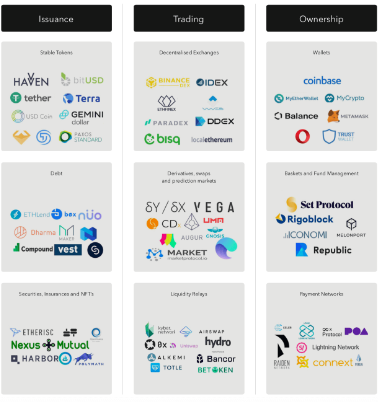In 2019, the Internal Revenue Service (IRS) provided some much needed clarity on the taxation of cryptocurrency for citizens of the United States. Chuck Rettig, the IRS Commissioner stated, “The new guidance will help taxpayers and tax professionals to understand better on how long standing tax principles apply in this rapidly changing environment. We want to help taxpayers understand the reporting requirements as well as take steps to ensure fair enforcement of the tax laws for those who don’t follow the rules.”
During the process of preparing your tax forms, you will come across certain terminologies that may seem confusing at first. The list below details some of the most used technical terms when filing your crypto taxes.
Important Terms When Filing Your Crypto Tax Forms
Capital Assets
A capital asset is basically the property you own such as stocks and bonds, real estate, investments and cryptocurrency.
Cost Basis
The original cost which you bought the cryptocurrency for by using fiat currency (USD) is the Cost Basis. These are the most common approaches when calculating the Cost Basis on each sale or cryptocurrency exchange. There’s no denying that Wrapped Bitcoin (wBTC) could relatively be a new concept. However, it could prove essential to bring liquidity to Decentralized Finance (DeFi).
-
First In, First Out (FIFO)
For this accounting method, the assets (cryptocurrency) purchased or acquired first are also disposed of first. FIFO assumes that your remaining portfolio will consist of the assets purchased last.
-
Last In, First Out (LIFO)
This accounting method calculates your cost basis on the assets you purchased or acquired last and will be the first to be disposed.
Fair Market Value (FMV)
For tax purposes, the Fair Market Value of a Bitcoin (cryptocurrency) is the dollar value of the Bitcoin at the time of transaction.
Gains
These are the profits you make on property. Classified into unrealized and realized gains.
-
Unrealized Gains
When your Bitcoin (cryptocurrency) increases in value but still remains in your possession.
-
Realized Gains
When you sell your Bitcoin and receive the cash value of that gain. Once this occurs, the gains are now ‘realized’ and are liable for tax. Realized Gains are further classified in short-term gains and long-term gains.
Like-kind property
There is a misconception about whether or not crypto investors can claim a direct crypto conversion (Bitcoin to Litecoin) as a ‘like-kind’ exchange to avoid taxes on those transactions. Updated by the IRS in 2018, like-kind exchanges are only available on transactions pertaining to real estate.
Short-term Gains vs. Long-term Gains
A short-term gain is when you sell an asset that was in your possession for less than a year. While a long-term gain is when you hold the asset for more than a year before selling it. Long-term capital gains are taxed at a more favorable rate than short-term capital gains.
Proceeds – Cost Basis = Capital Gains
Losses
If you dispose of your cryptocurrency for less than your cost basis, you incur a loss. You can avail a deduction of upto 3000 dollars by using your loss on the crypto to offset capital gains from other assets for that tax year.
Ordinary assets
The goods and services that businesses sell on a daily basis to its customers. Ordinary assets include the inventory and stock-in-trade, property acquired through trade, etc.
Proceeds
Proceeds is the money received when you sell your cryptocurrency. If you have converted one crypto into another, the proceeds are determined by the dollar value of the crypto you received at the time of the transaction.
What are the Main Crypto Tax Forms?

Form 8949
If you are a crypto investor who owns crypto as a capital asset, use ‘Sales and Other Dispositions of Capital Assets, Form 8949’ to report each individual crypto transaction along with the assets transacted, dates they were acquired and sold, cost of the transaction, net gain or loss, and if it was a short-term or long-term.
Form 1040 (Schedule D, Capital Gains and Losses)
This is a summary of your total short-term and long-term capital gains or losses from Form 8949, Sales and Other Dispositions of Capital Assets.
Form 1099-K (Payment Cards and Third Party Network Transaction)
A Form 1099-K is used to report income (but not cost basis, gains or losses) from credit cards and third-party networks.
Why can’t Crypto Exchanges file Accurate Tax Reports?
Cryptocurrency exchanges like Coinbase face issues when it comes to accurately filing your crypto taxes. The problem, when you send cryptocurrencies from other exchange platforms into Coinbase, they have no way of knowing how, when, where or at what cost you acquired that cryptocurrency sent in. This is essential to identify your capital gains or loss. Coinbase only has access to the crypto that is displayed in your Coinbase wallet.
Coinbase has stated on their website that your crypto information might not be accurate if you have carried out any of the following crypto activities.
-
Bought or sold cryptocurrency on another crypto exchange.
-
Sent or received cryptocurrency from a non-Coinbase wallet.
-
Sent or received cryptocurrency from another exchange.
-
Stored cryptocurrency on an external storage device.
-
If the crypto trader has participated in an Initial Coin Offering (ICO).
Every crypto exchange that allows its crypto traders to send and receive cryptocurrencies from other platforms face the same problem as Coinbase when it comes to generating accurate reports.
What are Crypto Tax Softwares?
As cryptocurrency rapidly changes in value, sorting through your crypto data can be quite an immense task. Crypto tax softwares can precisely record and calculate all your crypto activities thus, saving you plenty of time.
Most crypto softwares offer detailed reports on multiple cryptocurrencies and have a cryptocurrency portfolio management program that efficiently runs and maintains your crypto trading profile. Some of the popular crypto tax softwares are listed below.
ZenLedger
This is a do-it-yourself crypto tax tool calculates your crypto liabilities accurately. Using ZenLedger, you can import your crypto data from all major crypto exchanges and calculate profit or loss statements for you or your Certified Public Accountant (CPA). Reports like capital gains, income, donations and closing reports can be downloaded. The software lets you choose which accounting method to use such as FIFO, LIFO, etc.
Token Tax
Token Tax has integration with more than 50 cryptocurrency exchanges, allowing you to import your crypto trading activity and generate many compliance reports such as Schedule C, 8938, FBAR, and 8949, etc. The main benefit of Token Tax is for traders who deal in crypto internationally, the software handles tax liabilities of margin trades from margin crypto exchanges such as Poloniex, BitMex, Bitfinex, etc.







